Queen Hind: 180 rescued sheep arrive at new home in Romania
- Published
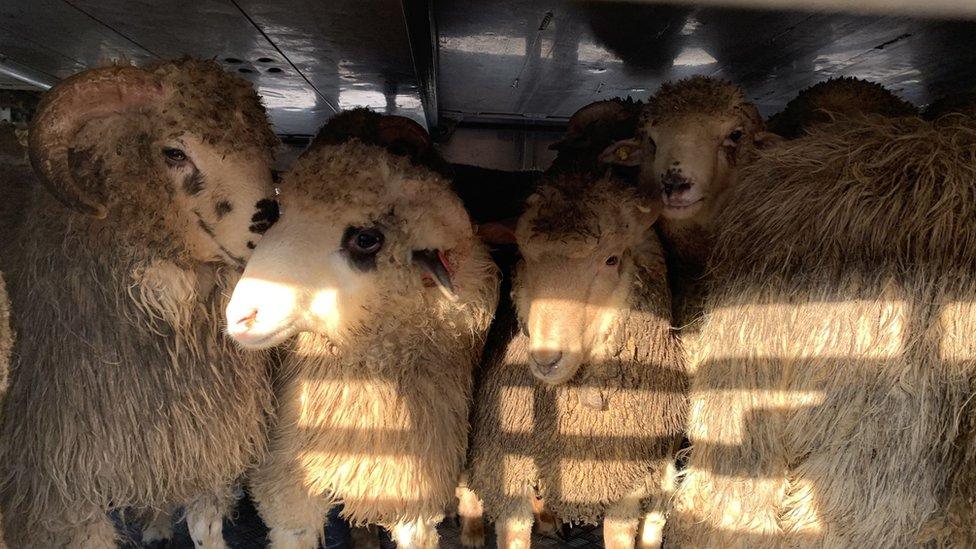
Some 180 sheep have survived the ordeal
A flock of 180 sheep saved from a capsized cargo ship in November have arrived at their new home in Romania.
More than 14,000 sheep were being transported on the Queen Hind ship from Romania to Saudi Arabia, where they were due to be slaughtered.
After the disaster rescuers managed to save 254 sheep, although dozens later died of exhaustion and injuries.
The animal welfare groups that led the rescue have refused to send the surviving 180 sheep to their deaths.
Four Paws and its Romanian partner organisation Arca have now been granted custody of the sheep - which are actually all male, and are therefore rams.
They are still in talks to gain full ownership of the animals. When they officially own the rams, they will arrange for them to be permanently adopted by vegan sanctuaries for rescued farm animals within Romania.
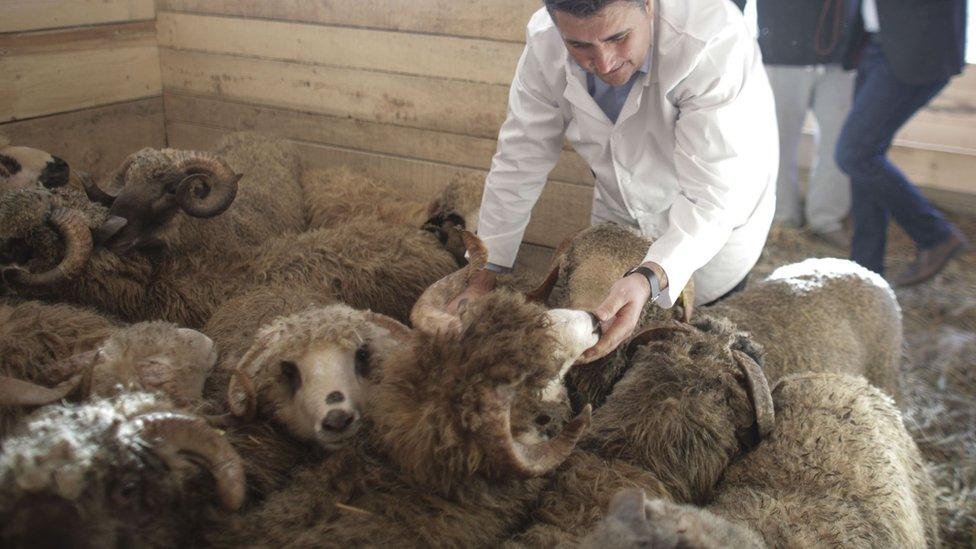
When the animal welfare groups officially own the sheep, they will arrange for them to be adopted by vegan sanctuaries
For now, the animals are living in a former horse farm north of Bucharest that has specially been adjusted for sheep.
Martina Stephany, from Four Paws, tells the BBC that they were inundated with offers of help from animal sanctuaries after news of the rescue first came out.
"Most of the offers came in without us even doing anything, because people saw the news and got in touch - some just said, 'Hey, I have a farm with some space, if you want I can take some sheep'," she said.
The next step, Ms Stephany said, is to visit the sanctuaries and check that they're suitable.
"We want to ensure the sheep have a normal life and that they'll never go to slaughter," she said, adding that while they may look at sanctuaries outside of Romania, they don't want the sheep to have to travel long distances.
She added: "We probably won't put them all in the same place because there are simply a lot of them - and you can imagine that, since they are all males, it would be good for them to be in smaller groups."
On 24 November, the Queen Hind overturned in the Black Sea after leaving the Romanian port of Midia
Many global animal welfare organisations have campaigned for restrictions on the long-distance transportation of live animals.
The RSPCA in the UK, for example, has called for long-distance live transport to be replaced with a "carcass-only" trade, and for journey times to be limited to a maximum of eight hours.
At the time, Romania's main livestock breeder and exporter association Acebop called for an urgent investigation into the overturning of Queen Hind.
"Our association is shocked by the disaster," Acebop president Mary Pana told AFP news agency. "If we cannot protect livestock during long-distance transports, we should outright ban them."
- Published6 January 2020
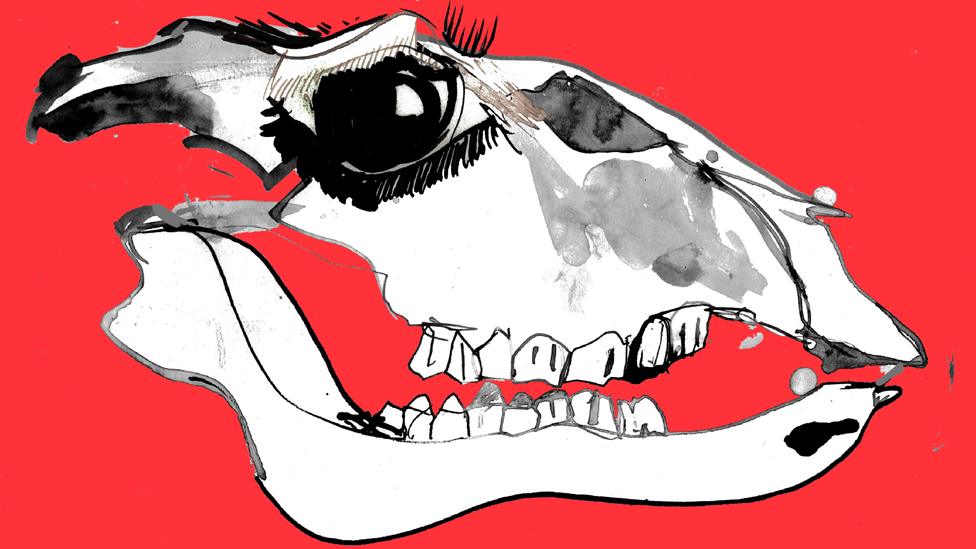
- Published28 September 2019
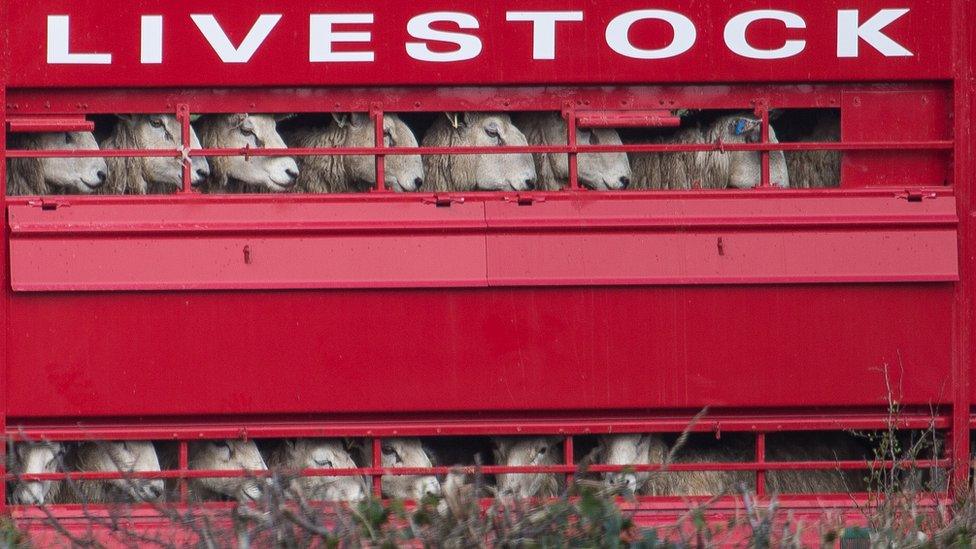
- Published18 September 2017
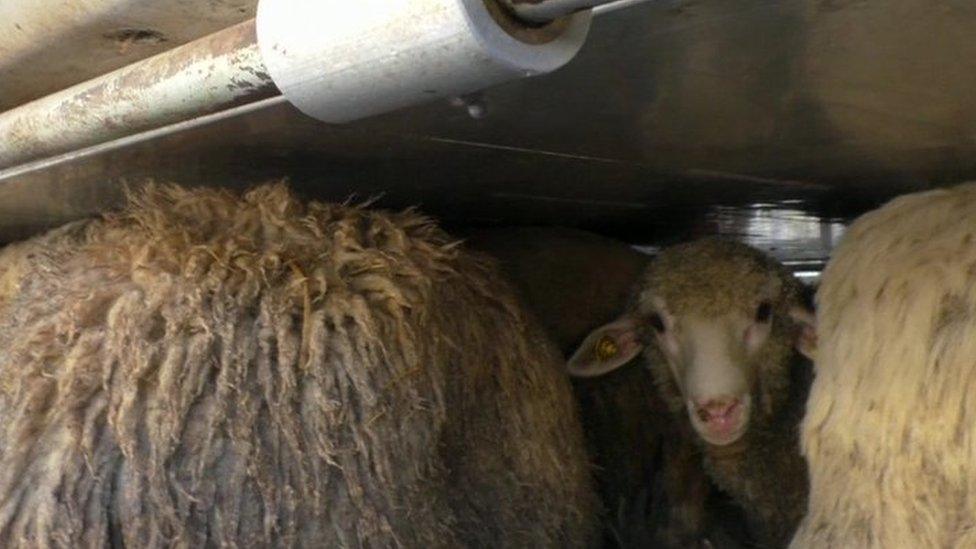
- Published11 September 2018
